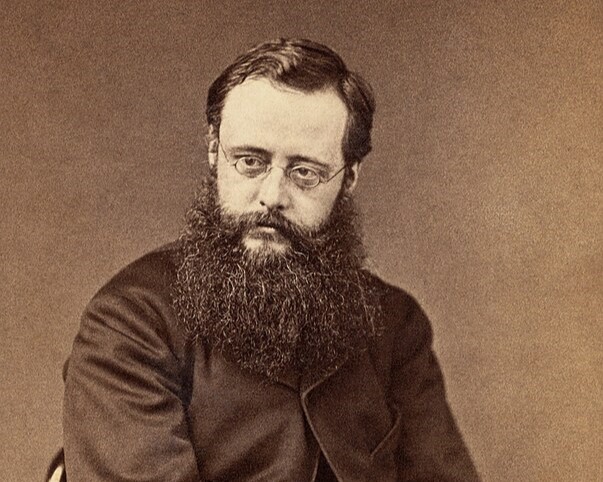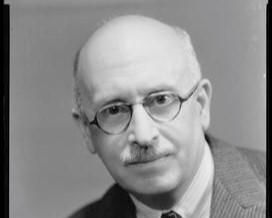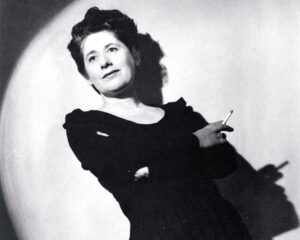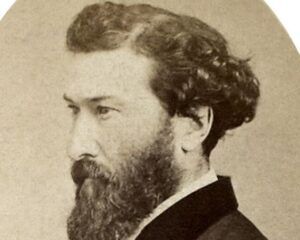Wilkie Collins: The British Godfather of the Whodunnit

When we think of the whodunnit genre today, we often picture dusty drawing rooms, a motley cast of characters, and a detective – usually with a quirky moustache or a penchant for sherry – gathering everyone together to reveal the killer. But before Hercule Poirot straightened his tie and Sherlock Holmes deduced his way through foggy London streets, there was Wilkie Collins, the man who is arguably the British godfather of the whodunnit.
A Victorian Maverick
Born on 8 January 1824, William Wilkie Collins was destined to live in the shadow of his famous father, William Collins, a successful landscape painter. However, young Wilkie had no intention of sticking to the canvas. Though initially trained for the law, he found the legal world as dull as a Dickens novel without the wit (more on Dickens later). Instead, he turned to writing, and, as it turns out, he was rather good at it.
Collins was very much a man of the Victorian era, rubbing elbows with the literary giants of the day – Charles Dickens chief among them. He wrote during a time when the novel was undergoing something of a transformation. No longer just a vehicle for moral instruction or melodrama, the novel was becoming a form of entertainment for the masses. And Wilkie Collins was right at the forefront of that movement, embracing the sensational, the thrilling, and the downright spooky.

The Sensation Novel: Collins’ Secret Weapon
If you were a Victorian reader, the word “sensation” would send shivers down your spine – but in a good way. Collins is often credited with creating the “sensation novel,” a genre that blended elements of mystery, crime, and domestic drama with a dash of scandal thrown in for good measure. These novels were page-turners before the term was even coined. They were devoured by an increasingly literate public who just couldn’t get enough of their heart-pounding plots.
Collins’ first major sensation success was The Woman in White (1859), a novel that didn’t just captivate readers – it had them positively buzzing. It had all the hallmarks of a classic whodunnit: mistaken identities, an eerie asylum, and a dastardly villain. The way Collins weaved the plot together – with its intricate details and multiple narrators – was nothing short of groundbreaking for the time. Readers were hooked, and Collins became a household name.
The Moonstone: The Birth of the Modern Detective Novel
Then came The Moonstone (1868), Collins’ pièce de résistance, and often cited as the first modern detective novel. At its core, The Moonstone is a mystery about the theft of a valuable diamond from an English country house. But what sets it apart is how Collins crafts the narrative, introducing a methodical investigation process, a charmingly eccentric detective in Sergeant Cuff, and the suspenseful unveiling of clues.
It’s impossible to overstate the importance of The Moonstone. Here, for the first time, was a novel that combined a gripping mystery with a deep psychological insight into its characters. It wasn’t just about what happened, but why. Collins understood that a good whodunnit isn’t just about a twist at the end – it’s about keeping readers hooked as they sift through the evidence alongside the detective.
Sergeant Cuff, by the way, is a precursor to the great fictional detectives of the 20th century. With his meticulous nature and keen eye for detail, he’s the spiritual grandfather of Sherlock Holmes, Hercule Poirot, and Miss Marple.
Dickens and Collins: The British Godfather of the Whodunnit Needed a Mentor
Speaking of detectives, it’s impossible to talk about Wilkie Collins without mentioning his famous friendship with Charles Dickens. The two were close collaborators and friends, working together on numerous projects. Collins even published many of his works in All the Year Round, a magazine edited by Dickens.
Their friendship was a mutually beneficial one. Collins helped Dickens lighten up a bit, pulling him away from the heavy social commentary of his earlier works, while Dickens provided Collins with a platform to reach a wider audience. In fact, their collaboration extended to the stage, with both writing plays together – although it’s fair to say that neither of them were exactly Shakespeare.
But their friendship wasn’t without its tensions. Dickens, always the moralist, disapproved of Collins’ rather unconventional lifestyle (more on that shortly), and some believe there was professional rivalry as Collins’ star began to rise. Nonetheless, they remained friends until Dickens’ death in 1870.
A Rebel in Victorian Britain
Now, if Collins’ novels shocked Victorian society, his personal life raised just as many eyebrows. He was a bit of a rebel, living in not one, but two unconventional domestic arrangements. Collins never married, but he maintained relationships with two women, Caroline Graves and Martha Rudd, fathering children with the latter. This was scandalous by the standards of the time – think Victorian tabloid fodder – but Collins seemed unfazed.
His unconventional lifestyle extended to his health as well. Collins was plagued by illness for much of his life and developed a dependency on laudanum (a form of opium) to manage the pain. His addiction became a central part of his life and may have contributed to the more surreal, drug-fuelled elements of some of his later works.
Writers Influenced by Collins
Collins’ impact on the literary world is hard to overstate. His innovations in narrative structure, his creation of suspense, and his fascination with the darker aspects of human nature have influenced generations of writers. While Agatha Christie is often hailed as the queen of the whodunnit, it’s fair to say that Collins paved the way for her and others.
Arthur Conan Doyle’s Sherlock Holmes owes a great deal to Collins’ Sergeant Cuff, as both detectives share that obsession with detail and a deep understanding of human psychology. Similarly, Dorothy L. Sayers, who created the detective Lord Peter Wimsey, was heavily influenced by the mixture of crime, drama, and character development that Collins championed.
In modern times, writers like P.D. James and Ruth Rendell, who brought psychological depth to crime fiction, are also part of Collins’ legacy. Even the world of television has inherited his knack for drawing out suspense and mystery over multiple episodes (or in Collins’ case, serialized chapters).
A Lasting Legacy
Though Collins’ fame may have dimmed in the shadow of his contemporaries like Dickens, his legacy as the British godfather of the whodunnit is secure. His novels, particularly The Moonstone, laid the groundwork for an entire genre that would go on to dominate popular fiction throughout the 20th century and beyond.
Wilkie Collins was more than just a writer – he was a pioneer who dared to blend the sensational with the literary, the thrilling with the psychological. His work still resonates today, not just for its clever plotting, but for its understanding of human nature in all its complexity. So, the next time you crack open a detective novel or binge-watch a mystery series, spare a thought for the man who started it all.
After all, without Wilkie Collins, we might still be searching for clues.
Cheers
Shaun


